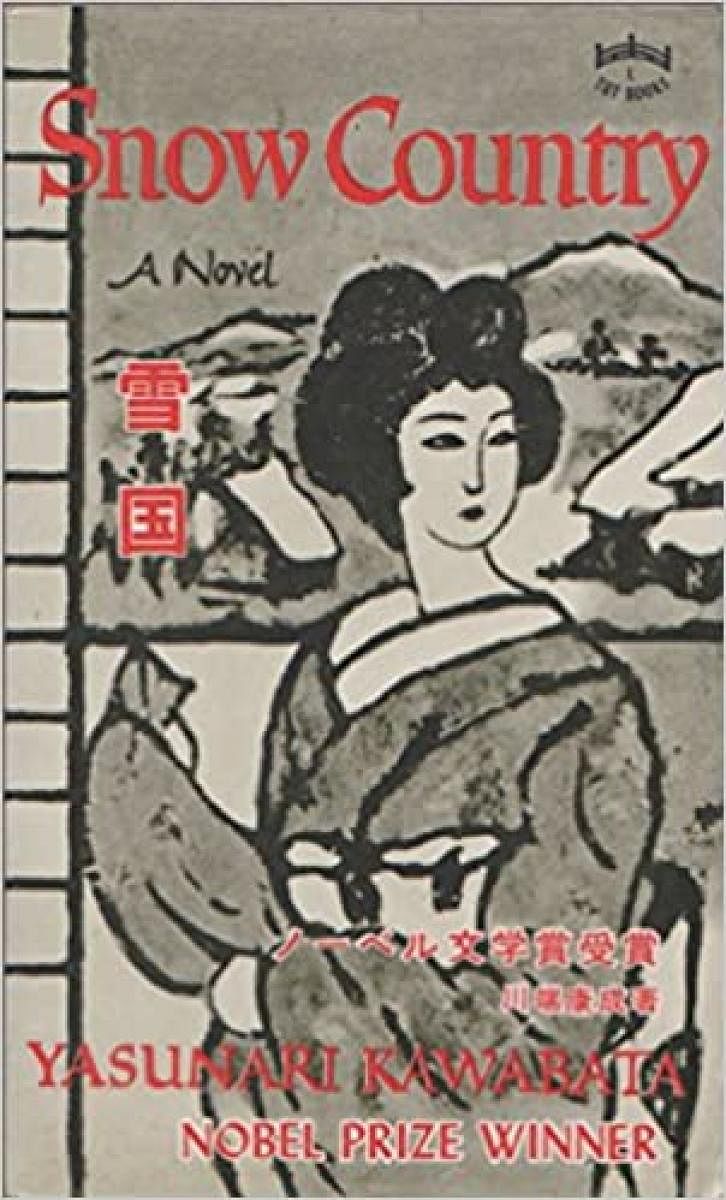
It’s winter. There’s a train that emerges from a long tunnel into a snowy landscape. The train stops at a signal and a young girl pushes up a window and engages in a conversation with the station master about the snow, the cold, and her brother who is working on the railway.
Thus begins Snow Country, widely acclaimed as the late, great Yasunari Kawabata’s masterpiece. Kawabata, who founded a whole new movement in modern Japanese literature, became the first writer from that country to receive the Nobel Prize in 1968. The citation by the Nobel Committee says that it was awarded to him for “his narrative mastery, which with great sensibility expresses the essence of the Japanese mind.”
It’s impossible to argue with that description of Kawabata’s work and approach to telling a story. Much like a couple of other postwar Japanese storytelling masters — the filmmaker Yasujiro Ozu is a name that springs to mind — Kawabata’s characters have inner, often roiling, emotional landscapes but outwardly present a highly refined aestheticism.
Snow Country at its essence is about love that is doomed from the start. The central love story takes place between Shimamura who is a city dweller visiting a hot spring town in the mountains and Komako who lives in the town and is an apprentice geisha. Shimamura is a dilettante and his main interest seems to be writing essays and critical think pieces on ballet, the “occidental dance” as it’s described by Kawabata. Shimamura’s knowledge of ballet comes entirely from books — he’s never attended a ballet performance and this oddity underlines his shallow, non-committal personality best. He has a wife and children back in Tokyo and has come to the hot spring town because he’s bored in the city and wants some kind of adventure. Shimamura has a fantasy, in the first part of the novel, that he could bring his wife to the town as well and that Komako could possibly be a companion for her — they can, in essence, be one happy pretend family.
Komako, however, is aware that this is a love that’s going nowhere. She’s also, increasingly over the many years that the story spans, prone to drinking. She’s lost a great love and the fact that she’s living in what is essentially a resort town means there’s only one path towards some kind of economic security and that is becoming a geisha.
Snow Country is a novel suffused with melancholy. Shimamura thinks about “wasted love”, though the more practical Komako doesn’t quite see it as such and you are more likely to sympathise with her point of view. It is Kawabata’s masterly, restrained use of language that is almost haikuesque which brings this to the fore: between the two characters it’s the woman who emerges with a better understanding of what it takes to connect with a fellow human and why any effort put into this can rarely be considered a “waste”.
Fifty years ago, in the April of 1972, Kawabata took his own life in an apartment that he used as an office. At the time of his death, he was still Japan’s lone Nobel literature laureate. The manner of his death sent shockwaves around the world, especially given that he’d specifically condemned suicide when accepting his Nobel prize. But ill-health and old age seemed to have changed his mind. His unparalleled body of work comprising short stories and novels have only grown in stature in the decades since his passing. As well they should: few writers could capture the grace, beauty, and pain of living and love like Kawabata.
The author is a Bengaluru-based writer and communications professional with many published short stories and essays to her credit.
That One Book is a fortnightly column that does exactly what it says — takes up one great classic and tells you why it is (still) great. Come, raid the bookshelves with us.